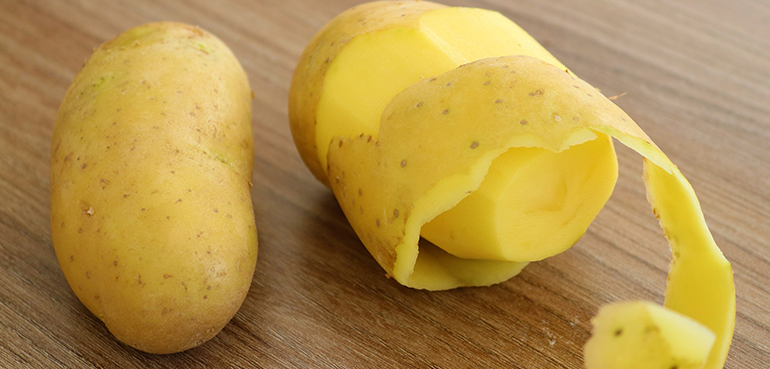Thanks to the ketogenic diet and other low-carb eating plans, potatoes have an even worse rep than Emma Stone’s character in Easy A. (The only exception: sweet potatoes, which have somehow managed to secure a shiny health halo.) But as people increasingly shift away from “meat and potatoes” to “grass-fed beef and cauliflower mash,” spuds are left in the corner looking like a sad sack of…well, you know.
Which begs the question: Are potatoes healthy? And do they deserve their fate as culinary outcasts?
“Potatoes have been vilified over the past few years because they’re high in carbs and they also raise your blood sugar quickly,” says 80 Twenty Nutrition founder Christy Brissette, RD. (FWIW, one large, raw white potato has 58 grams of carbs.) “So a lot of diets and nutrition experts give the advice to avoid eating white, starchy foods because of that blood sugar surge.”
But despite that, Brissette is not anti-spud. Yes, potatoes are high on the glycemic index (meaning that it can have a strong impact on blood sugar), but she says that can actually work in your favor, like after a workout. “When you want to refuel, that quick hit of energy can help,” she says. Post-run hashbrowns, anyone?
And carbs aside, potatoes have a pretty stellar nutritional profile. “Because they’re a vegetable—and not, say, a nutrient-void processed food—they come with a lot of benefits,” Brissette says. Need proof? One large, raw potato also has nine grams of fiber, 1502 mg of potassium (three times as much as what you’d get in a banana!) and 34 mg of vitamin C. “People don’t tend to think of potatoes as vitamin C-rich sources because they’re not citrusy fruits, but they actually are an amazing source,” Brissette says. “You get 45 percent of your daily intake, which is pretty impressive.”
Of course, how you make your potatoes and what you serve them with matters, too. Brissette says the skin is a good source of fiber and potassium, so you’re getting more nutrients if you bake or roast your potatoes, versus peeling them and making mashed potatoes. “Also, if you add a tablespoon of healthy fat—like butter, olive oil, or avocado oil—that will lead to a slower release of the sugar and will help the vitamins be better absorbed,” she says. So yes, adding butter on top is approved in her book.
Even with these benefits, a lot of people still get caught up on carbs. “One cup of carbs—about the size of your fist—at a meal paired with protein, healthy fat, and vegetables is actually part of a healthy diet,” Brissette maintains. “The problem is when you go to a restaurant and get a baked potato the size of your head or eat a whole plate full of fries because then it’s bigger than the serving size.”
So, yes, potatoes actually are healthy—as long as they’re eaten in moderation (like, you know, essentially everything else). If you don’t like them, or they don’t fit in with your current eating plan, that’s totally fine. But if you do enjoy a good baked potato with sour cream every now and then, don’t let the haters scare you off. Read More

